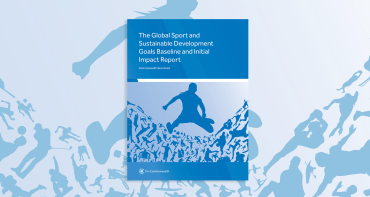Commonwealth brings together development agencies, banks and finance ministries to discuss the environment for female entrepreneurs.
The Commonwealth is working to unlock the potential of women entrepreneurs by urging banks and governments to recognise the economic benefits of granting women access to much needed finance.
During a roundtable held at the Commonwealth Secretariat in London, UK, from 27 to 28 June 2012, delegates from development agencies, banks, member countries’ ministries of finance and other bodies discussed ways of creating an enabling environment for female entrepreneurs.
| “Women entrepreneurs are a largely untapped, under-resourced sector of the economy” - Dr Sylvia Anie |
“There are women out there with ideas. There are women out there who want to play a role, but there are barriers and some of the barriers seem so huge that women from the outset are discouraged,” said Dr Sylvia Anie, director of the gender, health and education sections at the Secretariat.
“It is time now to address some of these issues such as cultural barriers, socio-economic barriers, institutional challenges and the variety of issues that have made it very difficult to access funding for women’s businesses.”
|
Gender Responsive Investment (GRI) is the facilitation of financial access to women and capital flows to women-owned enterprises by governments, financial services providers and other relevant agencies. GRI contributes to women’s empowerment and supports the closure of gender gaps. It also drives economic growth, supports equality and contributes to poverty reduction. |
Delegates critiqued a Gender Responsive Investment (GRI) handbook being developed by the Secretariat, which will guide policy-makers, civil society and financial institutions among others on how to create a fair system for both genders to access finance.
Elizabeth Pimentel, an independent consultant specialising in development studies, finance and gender and consultant for the GRI handbook, said the document’s initial purpose will be to raise awareness and then assist countries with implementation.
Barbara Asiimwe, Head of the Women’s Programme at DFCU Bank, Uganda, explained that policy-makers must understand the importance of financing women.
“Women have a big untapped potential that if well exploited can get our nation's GDP to grow at twice the rate it is at now,” she said.
“It goes beyond wanting to be equal in the market, it goes to the whole economic sense of it.
“For example, Uganda has 40 per cent women-owned enterprises which employ 48 per cent of our population of 32.6 million people. With an employment rate of about 83 per cent, if we are to grow our economy, we need to leverage on the women.”
Commonwealth Deputy Secretary-General Ransford Smith said focusing on GRI is one route to tapping the under-explored female economy estimated at US$5 trillion.
Dr Anie added: “One aspect is for banks and financial institutions to look at their procedures and demystify this idea of women not being good in business, to open doors and ensure that processes used to judge a client’s ability to pay back are not based on issues of femininity."
| The 9th Women’s Affairs Ministers Meeting in June 2010 highlighted the need to focus on women’s economic empowerment. |
Ms Pimentel said there will be no quick solution to women’s finance, which has been on the agenda of major development agencies for almost 10 years when it was first raised by the United Nations.
The Secretariat will distribute the GRI handbook, once completed, to Commonwealth countries through regional workshops and other seminars that will seek to fast-track the issue high on to the agenda of Commonwealth governments.
Member countries attending the roundtable were: Malawi, Nigeria and Sri Lanka. Organisations present included the Commonwealth Business Council, Commonwealth Foundation, Trapezia Fund, Overseas Development Institute and the British Association of Women Entrepreneurs.


